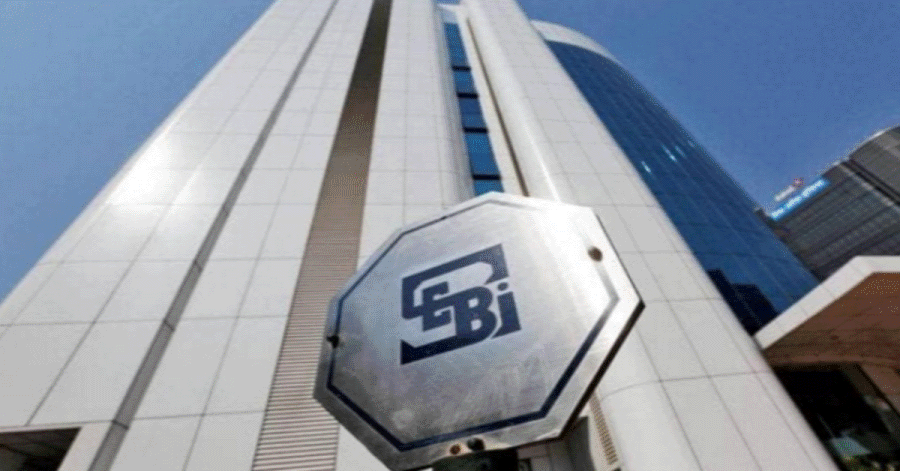Securities and Exchange Board of India
Many of us are very aware of the fact that SEBI is a regulatory body when it comes to the transactions that take place in the country’s stock exchanges. Those who trade come across more often about the rules, guidelines and few other things revolving around this one regulatory body. To know what exactly it is, when was it formed and with what purposes, how it functions and what are its powers, let us learn what exactly SEBI is:
What is SEBI and what are the objectives behind its creation?
Securities and Exchange Board of India is a statutory regulatory body entrusted with the responsibility to regulate the Indian capital markets. SEBI protects the interests of the investors by enforcing certain rules and regulations while monitoring and regulating the markets.
SEBI was formed under the SEBI Act,1992 on April 12,1992 with the objective to ensure that the Indian capital market works in a systematic manner and a transparent environment is offered to the investors. The main objective is to prevent malpractices by maintaining a balance between statutory regulations and self-regulations in the Indian capital market and promote the development of the same. It has its headquarters in Mumbai and regional offices in New Delhi, Chennai, Kolkata, and Ahmedabad. Other prominent cities in India have local regional offices too.
Thus, it looks after the interest of three Is:
Issuers- by providing a marketplace to the investors where they can efficiently and fairly raise funds.
Investors-SEBI protects and supplies accurate information to investors. And
Intermediaries- it offers a professional and competitive market to the intermediaries.
Primary Functions of SEBI
The functions can be divided into three parts-
1.Protective Functions-These are to safeguard the interest of investors and other financially benefited parties. It prevents insider trading and promotes fair practices, crates awareness among investors and prohibits fraudulent and unfair trade practices. It also provides for price rigging.
2. Development Functions-SEBI promotes fair trading, carries out research work, encourages self-regulating organizations, imparts training to intermediaries and does buying and selling of mutual funds directly from AMC though a broker.
3.Regulatory Functions-By this function it keeps a check on the functioning of the work in the financial markets. SEBI regulates takeover of companies, conducts inquiries and audit of exchanges, designs guidelines and code of conduct for the proper functioning of financial intermediaries and companies, levies fees, exercises powers, registers as well as regulates credit rating agencies.
Organizational structure of SEBI
The Board of SEBI is made up of nine members:
- One Chairman appointed by the Government of India.
- One member from the Reserve Bank of India.
- Two members who are officers from the Union Finance Ministry and
- Five members appointed by the Union Government of India.
SEBI’s role in Indian financial system
SEBI regulates the capital markets in an orderly manner. It protects the interests of both the investors and the issuers who are the main players in the markets. SEBI ensures the issue of the IPOs and FPOs to take place in a transparent and healthy way. The listed companies raise funds through the issue of shares hence the role of SEBI is important.
It protects investors from getting victimised by any stock market related fraudulent or malpractices. The investors are the pillars of the capital markets and safeguarding their interest is a must for SEBI.
The financial intermediaries like brokers and sub-brokers help the carrying out of stock market transactions in a smooth and secure manner. SEBI keeps a watch on the activities of the stock market intermediaries.
Powers of SEBI
SEBI possesses powers to supervise and guide the functioning of the stock exchanges and other intermediaries involved in dealing with securities market. It has powers to ask for information pertaining to such transactions. SEBI exercises many powers as listed here:
1.The ministry of Finance via a notification issued on 13th September,1994 delegated several powers under the Securities Contracts (Regulations) Act to SEBI.
It has powers,
2.To approve by-laws of stock exchanges.
3.To Inspect the books of accounts and call for periodical returns from recognised stock exchanges.
4.To inspect the books of accounts of financial intermediaries.
5.To require the stock exchange to amend their by-laws.
6.To compel certain companies to list their shares in one or more stock exchanges.
7.Registration of brokers.
The powers can be categorised as
- Quasi-Judicial: It has the authority to deliver judgements related to fraud and other unethical practices in terms of the securities market.
- Quasi-Executive: SEBI implements the regulations and judgements made and takes legal action against the violators.
- Quasi-Legislative: It can make rules and regulations to protect the interest of investors. These rules are mainly pertaining to trading regulations, listing obligations and disclosure requirements. It keeps the unfair practices away by exercising this power.
SEBI’s powers have to go through the Securities Appellate Tribunal and the Supreme Court of India.
Stock markets affect any country’s economic health. To maintain high standards and gain trust of the investors is a very crucial task otherwise the people might lose faith in the market. Losing FDIs and FIIs can also curtail the country’s foreign exchange inflows.
SEBI has prevented many scams. The main aim behind its formation was to assure a reliable system while trading in stock markets by all the parties. The scams are still witnessed even today but their frequency and intensity are considerably less. The regulations get updated from time to time and various guidelines issued by SEBI need to be adhered to. SEBI has become more stringent but a big role player in country’s financial system.
This article is written by Rupal Vasavada, a financial blogger. She is passionate about writing articles on topics on finance.

